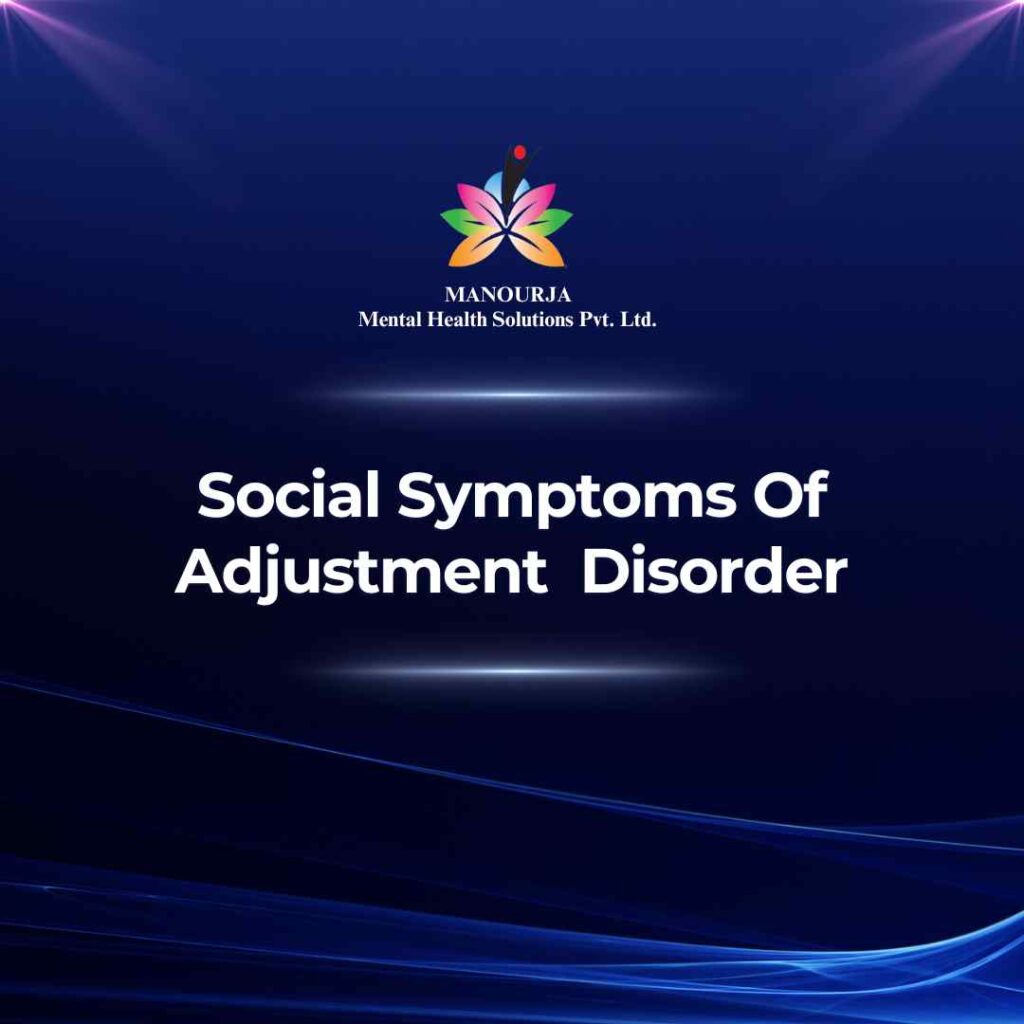Social Impact of Adjustment Disorder

Adjustment disorder can have profound social impacts, affecting an individual’s relationships and their ability to function effectively within various social contexts. This disorder disrupts normal social functioning, often as a direct result of the emotional and psychological symptoms it causes.
Here’s a detailed examination of the social impact of adjustment disorder:
- Social Withdrawal: One of the most noticeable effects of adjustment disorder is a tendency to withdraw from social interactions. Individuals may find social settings overwhelming or exhausting, leading them to isolate themselves from friends, family, and social activities. This isolation can exacerbate feelings of loneliness and depression.
- Impaired Relationships: The emotional volatility associated with adjustment disorder, such as irritability, sadness, and anxiety, can strain personal relationships. Individuals might struggle to communicate effectively or maintain emotional stability, leading to misunderstandings and conflicts with partners, family members, and friends.
- Reduced Work or School Performance: Adjustment disorder can lead to difficulties in concentrating, maintaining productivity, or managing responsibilities at work or school. This can result in decreased performance, which may lead to conflicts with colleagues or supervisors, and potentially jeopardize the individual’s job or academic standing.
- Difficulty Adapting to New Roles: Whether it’s becoming a parent, entering retirement, or starting a new job, adjustment disorder can make it particularly challenging to adapt to new roles or environments. Individuals might feel unprepared or incapable of meeting the expectations associated with these roles, leading to stress and further withdrawal.
- Avoidance of New Experiences: Due to increased feelings of anxiety and stress, a person with adjustment disorder might avoid new experiences or opportunities, particularly those that might require significant emotional investment or adaptation. This avoidance can limit personal growth and lead to a stagnant social life.
- Dependency on Others: Some individuals with adjustment disorder may become overly dependent on those in their close circle, relying on them for emotional support, decision-making, and daily tasks. This dependency can place a strain on relationships and potentially lead to resentment or burnout among those providing support.
- Social Anxiety: In some cases, adjustment disorder might manifest with symptoms similar to social anxiety, where the individual feels intense fear or dread about social interactions. This can inhibit their ability to engage in social activities and form new relationships.
The social impact of adjustment disorder can significantly disrupt an individual’s life and contribute to a cycle of stress and dysfunction. Addressing these social challenges is an important component of treatment, which often involves therapy aimed at improving communication skills, enhancing relationship dynamics, and expanding social networks. Support groups and family therapy can also be beneficial in helping individuals and their loved ones understand the disorder and develop strategies to cope with its effects together.
At MANOURJA, we believe in the transformative power of counseling. Our experienced therapists offer a safe and supportive space where you can explore your thoughts, emotions, and challenges. Through personalized counselling sessions, we’ll work together to develop coping strategies, build resilience, and achieve lasting positive change. Discover the path to a healthier, happier you with MANOURJA counselling services.
MANOURJA Rehabilitation Services
At MANOURJA, we’re dedicated to helping you in rebuild your life, after difficult times. Our rehabilitation services focus on understanding what you need to move forward, whether you’re recovering from addiction, trauma, or any psychological – social challenges. We create personalized plans, that are all about helping you, regain your strength and find hope again. With a caring team by your side, you’ll have the support to make real progress and take steps toward a brighter, healthier future.
